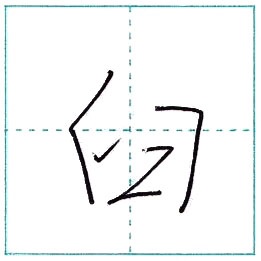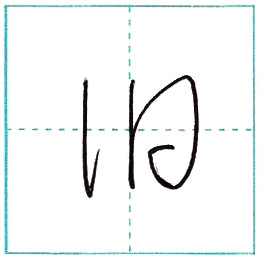今回と次回の記事で、草書の「臼」を2種類紹介します。今回はそのPart.1です。
こんかいとじかいのきじで、そうしょの「臼(きゅう)」をにしゅるいしょうかいします。こんかいはそのパートワンです。
I introduce 2 types of 臼(kyuu) in cursive script in this and the next article. This time is the Part.1.
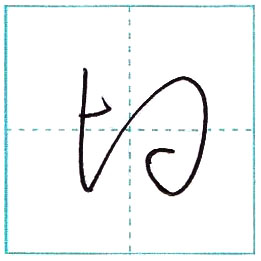
スポンサーリンク
草書は日常生活で書くことはなく、書道の作品でのみ使われています。
そうしょはにちじょうせいかつでかくことはなく、しょどうのさくひんでのみつかわれています。
We don’t write cursive script in daily life, it’s used only in calligraphy works.
単語例(たんごれい)
Word examples
羅臼岳 [らうすだけ ra usu dake] = Mt. Rausu-dake in Hokkaidō, Japan
茶臼岳 [ちゃうすだけ cha usu dake] = Mt. Chausu-dake in Tochigi prefecture, Japan
大分県 臼杵市 [おおいたけん うすきし oo ita ken usu ki shi] = Usuki city in Ōita prefecture, Japan
スポンサーリンク
書き順(かきじゅん)
Stroke order
1.
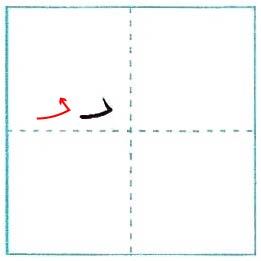
2. 次の線は、1画で書きます。
つぎのせんは、いっかくでかきます。
Write the next line with one stroke.

2-1.
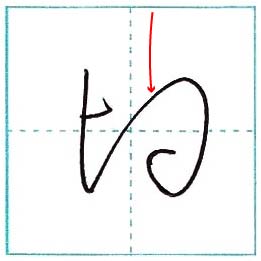
2-2.
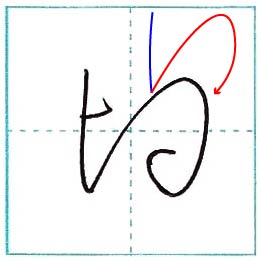
2-3.
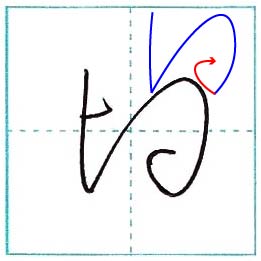
3. 完成(かんせい) Finish

公開日/post 2018.08.15
更新日/update 2025.05.29
スポンサーリンク

